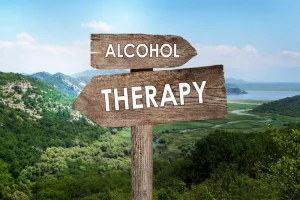Chưa có sản phẩm trong giỏ hàng.
Sober living
How to Help a High-Functioning Alcoholic How to Identify the Warning Signs

Completing alcohol rehab is a proven method for overcoming alcoholism. In rehab, people undergo alcohol detox, learn about the dangers of alcoholism and find new ways to avoid drinking. Many people with alcohol addiction grapple with guilt and anger, which can lead to blame. People may blame loved ones or employers for causing stress that led to their drinking problems.
- However, the level of alcohol involvement among these deniers was not benign.
- Offering a solution shows that you aren’t just judging or attacking; you are trying to help.
- You can also visit the NIAAA Rethinking Drinking website or read the NIAAA treatment guide to learn more about alcohol use disorder and to find help for your loved one.
- For others, an inpatient program that can help with withdrawal and mental health concerns might be a good choice.
- This leads to a prideful stance to maintain a distorted sense of power by not letting anyone “force” them into treatment.
- Recognizing signs in yourself or loved ones can initiate the process of recovery.
What Percentage of Alcoholics are Functioning or High Functioning Alcoholics?
- Concealing is another sign of alcoholism denial, where individuals try to hide their drinking from others.
- Comparisons of Groups 1 and 2 revealed that the 82% who were deniers were slightly younger and had lower proportions with alcohol dependence, lower average maximum drinks, and fewer AUD criteria endorsed compared to non-deniers.
- Alcohol addiction treatment centers offer a number of treatment options, and guide an individual through the recovery process.
- The SRE records numbers of standard drinks required for up to four effects including a first effect, feeling dizzy or slurring speech, unstable standing, and unplanned falling asleep.
- The information we provide is not intended to be a substitute for professional medical advice, diagnosis or treatment.
- Loved ones sometimes protect the person who is experiencing an alcohol problem, making excuses for their poor behaviors and failure to manage responsibilities.
- Denial is one of the biggest barriers to treatment for alcohol addiction.
Sixty-seven percent of 94 AUD probands and 82% of 176 AUD offspring reported themselves as light or moderate social drinkers despite averages of up to 12 maximum drinks per occasion and four DSM problems. Regression analyses indicated deniers evidenced less intense alcohol and drug-related problems and identified DSM-IV criterion items that they were most likely to deny. During an intervention with a loved one, family members show love and support while setting clear boundaries around substance abuse and consequences related to drinking. Clinical interventionist Drew Horowitz explains that an intervention with an alcoholic is not a confrontation, a fight or an argument.
- Her own lyrics told us “I don’t ever want to drink again.” But she did drink again.
- When someone reaches a crisis point, sometimes that’s when they finally admit they have a problem and begin to reach out for help.
- Sometimes denial can be helpful for a little while when dealing with a stressful or traumatic situation.
- Often, in trying to “help,” well-meaning loved ones will actually do something that enables someone dependent on alcohol to continue along their destructive paths.
What Can I Do if I Think My Loved One Is an Alcoholic?
For others, an inpatient program that can help with withdrawal and mental health concerns might be a good choice. We are available to explore addiction treatment options that can help you or your loved one get the assistance needed to start recovery. You can also visit the NIAAA Rethinking Drinking website or read the NIAAA treatment guide to learn more about alcohol use disorder and to find help for your loved one. Sometimes, it may be easier for your loved one with alcohol use disorder to avoid talking about it completely.
Signs of Denial in Alcoholism
Unconditional love and encouragement will go a long way in helping your loved one find freedom from alcoholism but, ultimately, the desire to change has to come from within. In some people, the initial reaction may feel like an increase in energy. But as you continue to drink, you become drowsy and have less control over your actions. For those dependent alcoholism and denial on a substance, talking to a healthcare provider is the best way to develop a plan for detoxing safely. In the pre-contemplation stage, someone may not view themselves as having an addiction or be willing to evaluate their actions (denial). As the behavior continues, a person may begin to reckon with the idea that there may be a problem (contemplation).

Living with someone in active addiction affects every aspect of life—from work to finances, physical well-being to relationships with family and friends. Ignoring or denying the difficult and painful consequences of alcohol addiction will only make things worse. In fact, by the time families reach out for help with a loved one’s alcoholism, the disease may have progressed to a crisis level involving an accident, lost job, arrest or medical emergency. The short-term effects of alcohol abuse can make people prone to violent behavior, injuries and accidents. Tables 3 and and44 focus on 176 AUD offspring who were primarily European American, 40% of whom were women, 29% had ever been married, and individuals who reported on average 15 years of education. Sixty-two percent met interval criteria for alcohol dependence, they reported on average 11 maximum drinks per occasion and endorsed an average of four AUD criteria.

Do Understand They’ll Need Outside Help
They use this comparison as a way to downplay their own behavior and convince themselves that they don’t have a problem. For example, someone struggling with denial will tell you, “Yeah, I need to cut back” or “This is my last drink,” yet continue drinking excessively without making any real changes in their behavior. For some people, outpatient programs with therapy treatment sessions are a great way to start the recovery journey.
Moving from denial toward meaningful change
For example, maybe someone is unhappy in a relationship, but the thought of being alone is worse than the thought of being together. Or perhaps someone is burned out or overwhelmed, and lacks the energy or emotional capability for accepting what’s happening. “Part of the person feels it’s easier not to think about the situation, and lets it go because it feels like it’s too much to handle right now,” Scholl says. At some point in life, everyone experiences denial, a natural response when you’re unable or unwilling to face the facts. Too much alcohol affects your speech, muscle coordination and vital centers of your brain.
What is considered 1 drink?
Fortunately, there are resources available to help you find support for your loved one such as the Substance Abuse and Mental Health Treatment Administration (SAMHSA) and the National Institute on Drug Abuse (NIDA). You can also start researching rehab facilities, such as American Addiction Centers (AAC) to find out about what to expect during treatment, how to pay for services, and more. In most cases, someone who relies on alcohol and drugs will continue to be in denial about their addiction until their problems become impossible to ignore. This could happen in the form of an overdose or other major health event, legal trouble, or relationship strain or loss. An important first step in addressing addiction is to recognize and accept how alcohol and substance use is impacting your life. But if you’re in denial about whether your alcohol and substance use is actually unhealthy and causing you problems, it can prevent you from getting help.


